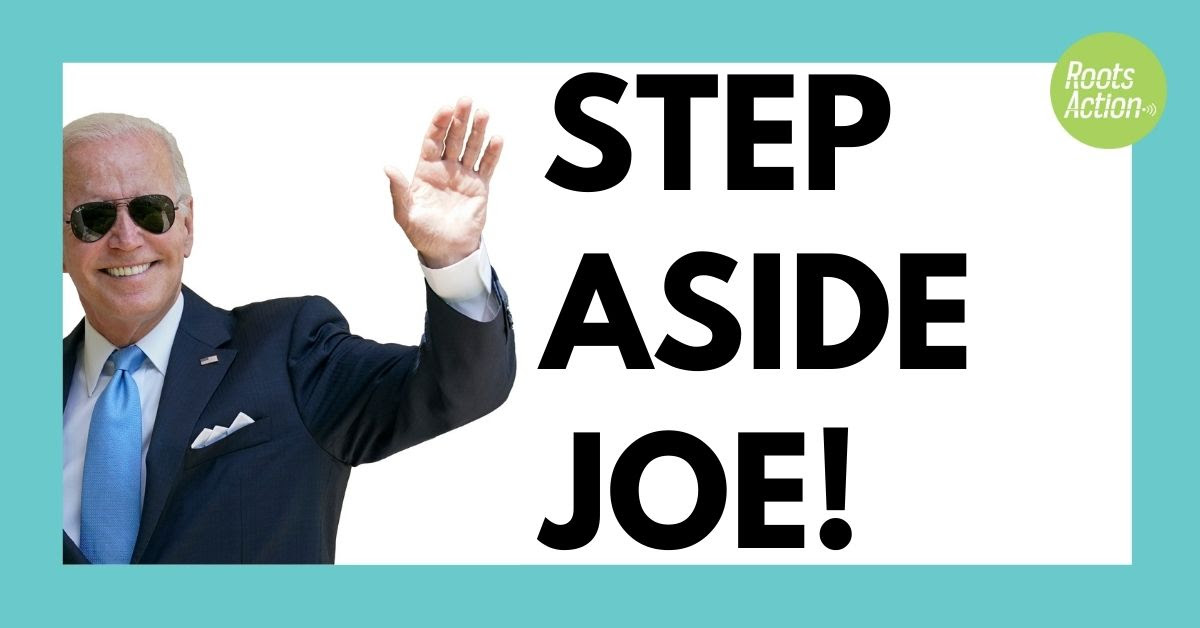After the twists and turns of a drawn-out process, on Tuesday, August 11, 2020, the Biden campaign chose Kamala Harris to be his vice presidential running mate, which will make her the first Black woman and South Asian–American person to appear on a major political party's presidential ticket.
Writing in The Nation (8/12/20), Joan Walsh described the jubilation expressed by friends, colleagues and writers. Amelia Ashley-Ward, the publisher of San Francisco's Sun-Reporter, a Black community paper, told the New York Times (8/12/20) she was so happy she was crying.
Sexist, Racist Slurs
Donald Trump wasted no time, however, employing his loathsome rhetoric. He wheeled out his favorite anti-woman slur, repeating four times that Harris was "nasty," escalating to "extraordinarily nasty" as he scorned her questioning of now-sitting Supreme Court Justice Brent Kavanaugh.
Even before Harris was named, Politico (8/11/20) noted, Fox News' Tucker Carlson (8/3/20) relaunched the "misogynistic tropes of likability from the 2016 campaign," saying even Democratic primary voters "found her repulsive," before adding, "pretty much no one who knows Kamala Harris likes her."
By Wednesday, Trump's son Eric who serves as the executive vice president for the Trump campaign, liked a tweet that read: "Raise your hand if you think Harris was a whorendous pick. May have misspelled." Though the tweet was soon deleted, the Trump campaign declined a request for comment from CNN (8/13/20). Right-wing talk host Rush Limbaugh (8/14/20) gave Misogyny 2020 its pithiest slogan yet with "Joe and the Ho."
As Republicans and their operatives groped for the right slur against Harris, they failed to detect the irony in their charge, first, that Obama was too African, and now that Harris is not African enough. Former George W. Bush aide Ari Fleischer claimed Harris is "just not that historically exciting to African Americans." Republican promoter Nick Adams took to Twitter (8/11/20) to question whether Harris herself could be considered African American, since her father is Jamaican and her mother is Indian.
"Republicans have shifted from trying to determine who is authentically American to determining who is authentically Black," Washington Post columnist Michele Norris (8/13/20) wrote. But the "nickname" Trump settled on for Harris—"Phony Kamala"—insinuates that she fails to meet his definition of "American" as well.
Newsweek (8/12/20) launched the citizenship question in a particularly despicable article implying that based on her parents' immigrant backgrounds, Harris might well not qualify to be vice president—and might not be a US citizen at all. (See FAIR.org. 8/13/20.) Though the magazine issued an "apology" of sorts, it denied the piece qualified as birtherism. "We entirely failed to anticipate the ways in which the essay would be interpreted, distorted and weaponized," the editors wrote in an added note on the original piece—as though there's a non-hateful way to propose that the children of immigrants be stripped of citizenship.
Corporate media pushed back against Trump's misogynist rhetoric. The New York Times (8/12/20) detailed how Trump and his allies launched racist and sexist attacks against Harris. The Washington Post (8/12/20) exposed GOP racist tropes, and the disrespect shown by refusing to pronounce her name correctly on Fox News.
A Self-Described 'Cop'
Yet emerging as a corporate media frame is a sloppy, mystifying confusion that refuses to distinguish the racist and sexist slurs against Harris from an authentic discussion of the trajectory of her political positions, and what they might mean for her as a serving vice president and a potential future leader of the Democratic Party. Within this frame, criticisms from the left and the right are treated as equally offensive.
This was evident early on in an opinion piece penned by Anthea Butler for NBC News (8/11/20), which asserted that after the announcement of Harris on the ticket,
the attacks and criticisms began flying across the web from conservatives and liberals alike. She's "extraordinarily nasty." She's "a cop." She's too conservative—or she's too liberal. She changes her mind constantly.
Criticizing the word "cop" when applied to Kamala Harris makes little sense. In fact, the word comes from Harris herself. Harris served as San Francisco district attorney from 2004 to 2011, and as California attorney general from 2011 to 2017. Amid the fanfare of winning the position of California attorney general, speaking behind a podium with a victorious smile on her face, Kamala accepted her new position by saying, "And I now stand before you as the Top Cop in the biggest state in the country." To illustrate the sloppy nature of this frame that all criticism is equal, Harris is shown calling herself a "cop" on a video segment sandwiched into Butler's piece.
The NBC video story offers highlights of Harris' career, starting in 1990 when she became a deputy prosecutor in Alameda County. She explains, "I decided to become a prosecutor because I feel a very strong sense of responsibility to protect those who are vulnerable." Yet in 2004, after winning the election to become San Francisco's district attorney, she raised the city's conviction rate, and was charged with being overly punitive, particularly in communities of color. The NBC video shows her saying:
It's a myth that commutes of color don't want law enforcement, we do. What we don't want is racial profiling. What we don't want is excessive force. What we don't want is to have our civil liberties and civil rights be stripped.
Included on the NBC video is a more recent event, and it is notable that Harris switched "law enforcement" to "public safety" in her speech, and added, "What we don't want is chokeholds or mass incarceration."
The Nation's Walsh (8/12/20) also noted she had been called a "cop"—"sadly, and somewhat unfairly"—and attributed it to the right as well as the left. For the right, she linked to a T-shirt offered by the right-wing Federalist website. For the left, she pointed to a critique of the left published in the conservative Washington Examiner (1/21/19) last year, headlined "The Left Decides Kamala Harris Is a Cop—but She's Running Anyway." Writer Tiana Lowe stated, "Harris fits the intersectional bill of the left to a T: half-Black, half-Indian, a woman, and as an added bonus, fairly young and attractive." She went on to say:
Harris' past of passivity on the death penalty and "hard on crime" approach has already spent years under careful examination by the hardcore Bernie base, but the lazier agents of the left have remained largely ignorant of her policing.
Barely able to conceal their contempt, the author derides the ignorant left and confirms, "The socialist wing of the party has already decided Harris is a cop."
NBC's Butler's link on "a cop" yields a Forbes article (8/11/20) that at least examines progressive responses to Harris' nomination, citing her spotty record on criminal justice issues.
Changes Her Mind?
The charge of "changes her mind" is recognizable as a criticism often leveled at women, seeding doubt about their trustworthiness, as the New York Times (8/12/20) pointed out was done by Tucker Carlson on Fox News (8/11/20) when he asserted that there are "time-share salesmen you could trust more." But rather than citing a sexist slur, Butler links to a legitimate Reuters discussion (8/11/20) about Harris opening her presidential campaign as a progressive supporter of Medicare for All, then backing off to position herself closer to the center. The piece mostly attributes Harris' campaign problems to the strategic errors of a candidate seeking to find a consistent persona (and concluding that she has now succeeded)
Authentic political discussions recognize that politicians who alter their positions may sometimes be indicating an ability to listen to the public and respond accordingly. Reuters' article is thoughtful, assessing how Harris has changed her policies and actions recently, bringing them more into alignment with her stated goals and rhetoric. Though in the past she presented herself as a criminal justice reformer, for example, as a prosecutor, she took no action in key police abuse cases, and defended a troubled prison system. "But her work of late has impressed some past doubters who say she did not do enough to investigate police shootings," Reuters' James Oliphant wrote.
Some activists aren't so forgiving. In an op-ed in Out (2/5/19), Chase Strangio said, "I'm not ready to trust Kamal Harris on LGBTQ+ issues," noting that Harris supported increased criminalization of sex work, locked trans women in men's prisons, and argued in court that trans people should not have access to medically necessary care in prison, calling it "frivolous."
In 2017, Jacobin's Branko Marcetic (8/10/17) penned a detailed and insightful analysis of Harris' criminal justice record in California:
Harris has emulated the Obama approach, delivering a combination of some notable progressive victories and pleasant rhetoric and a steadfast avoidance of structural change — paired, in some cases, with far-from-progressive policies.
Jacobin points to Harris' actions in the Daniel Larsen case as a particularly grim travesty of justice. After years in prison for carrying a concealed weapon, a judge finally reversed Larsen's conviction, yet Harris, even as a vocal opponent of mass incarceration, appealed the judge's decision on a technicality.
The limits of Harris's approach are likewise evident in her actions on police shootings. She did back a bill that required reports on officer-involved shootings to be posted publicly online, and mandated bias training and that justice department agents wear body cameras. But as district attorney, she refused to hand over the names of police officers with histories of misconduct whose testimony had led to convictions. As attorney general, she also opposed instituting police body cameras statewide, and stood against a bill requiring her office to investigate fatal police shootings.
Writing for Consortium News (7/9/19; reposted 8/13/20), human rights attorney Marjorie Cohn also offered insights into Harris as a prosecutor in an article headlined "Kamala Harris' Distinguished Career of Serving Injustice." Although Harris describes herself as a "progressive prosecutor," Cohn argues that her record is anything but progressive:
Through her apologia for egregious prosecutorial misconduct, her refusal to allow DNA testing for a probably innocent death row inmate, her opposition to legislation requiring the attorney general's office to independently investigate police shootings and more, she has made a significant contribution to the sordid history of injustice she decries.
It Will Take a Movement
It is hardly a worthwhile question to ask if Harris will be a better VP than Mike Pence, or if she will prove to be a formidable force in the electoral process. Two days after announcing Harris as the VP pick, the Biden campaign had raked in $50 million on the strength of the choice. On October 17, when the vice presidential debate will be televised nationally, there is little doubt, given her verbal acuity and past debate performances, that Harris will, dare I say, mop the floor with Pence.
Possibly the most significant task Kamala Harris seems uniquely able to take on is pulling media momentum away from the deadly xenophobia that has defined US discourse and policies under the purveyor of hate who currently occupies the White House. Telling her story will insert and champion women of color in mainstream narratives, and has the potential to shatter the white supremacist narrative that Trump has openly promoted, and that continues to undergird so much of the enthocentrism used to define America itself, including in media discourse. Harris has shown her tough debating skills, honed as a litigator, and she has the potential to tear Trump, his backers and enablers to shreds.
In the days after George Floyd was killed by police in Minneapolis, Harris joined protesters in the streets of Washington, and on Capitol Hill, she and Sen. Cory Booker (D.-NJ) drove Democratic efforts to battle police abuses, pushing back against an alternative Republican police reform measure that Harris blasted as "lip service."
After that, the attorney for Floyd's family, Ben Crump, published an opinion article (CNN, 8/1/20) supporting her candidacy, calling her a "change agent." Reuters (8/11/20) interviewed Lara Bazelon, a professor at the University of San Francisco School of Law, a former Harris critic. Bazelon now recognizes that Harris has made an "important shift" on criminal justice. She now hopes Harris will become a leading adviser to Biden on the issue.
"She got a good, hard shove to the left. I really hope she seizes that moment and resists the urge to drift toward safety and the center," Bazelon said.
Aimee Allison of She the People, an organization advancing women of color in politics, told the Nation's Walsh (8/12/20), "Generations of Black, Latinx, Indigenous, Muslim, Asian American and Pacific Islander women have fought to get us to this moment." Allison believes that the activism of women of color
showed that our organizing could generate high women-of-color voter turnout.... We can lead the charge in the states against voter suppression. It's a reimagining of American politics.
A joint statement from the Progressive Democrats of America and RootsAction said Harris "failed for years to hold police accountable for gross misconduct in California," with the groups adding, "We will fight every day to hold Vice President Harris to the higher ideals she often espouses."
Hopefully, with a movement behind her—and in front of her—Kamala Harris may find the courage to fight for her stated convictions.
https://fair.org/home/not-all-criticism-of-kamala-harris-is-created-equal/










